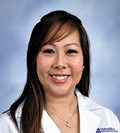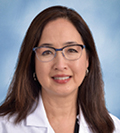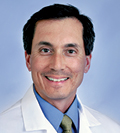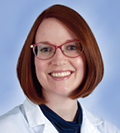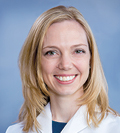Parental Insight Pays Off
They’ve been there, and done that.
NorthBay Healthcare’s obstetrics and gynecology team can speak with authority when it comes to all things relating to pregnancy, childbirth, and the challenges of juggling work and family time, as they are all parents. For some, the childbirth experience is fresh, as several have had their children within the past few years, while others have gained years of personal experience through raising children to adulthood.
“I had a complicated pregnancy and delivery,” explains Shanna Snow, D.O., mother of a 22-month-old boy, “with pre-term eclamptic seizure, urgent C-section, and a week in the ICU for both me and my son. That was followed by postpartum anxiety and depression due partly to the stress of it all. While I could sympathize with my patients before, now I have so much more empathy as I’ve been through the difficult and scary side.”
“Being a parent of two kids, ages 6 and 4, has definitely made me a better doctor, and a better listener,” said Stella Huang, D.O. “My patients would complain about certain symptoms and now I hear and empathize with them.”
Being the parent of an 11-, 17- and 21-year-old brings different challenges, noted Marlene Freeman, M.D.
“Now that my kids are growing older, my point of view has continued to evolve. As my kids are going through all these stages of life and hormone changes, and I have been going through a different kind of hormone change (menopause), I can relate to the changes my patients are going through, all of the moodiness and the drama. I can laugh (and sometimes cry) about it with them.”
“Being a parent of two kids, ages 6 and 4, has definitely made me a better doctor, and a better listener.”
— Stella Huang, D.O.
Drs. Li, Snow, Freeman and Huang are part of the comprehensive Women’s Health team at NorthBay that also includes Rachel Villalon, M.D., who has four children, and Andrew Lin. M.D., who has two. Tori Garcia, nurse practitioner, rounds out the team.
Some of the physicians knew from a young age that women’s health was a path they wanted to follow.
“But, the deal was sealed when I learned all the other ways this specialty could help women,” Dr. Snow explained.
“I, too, was drawn to the variety that our specialty allows with outpatient office visits, including prenatal and gynecology visits, and surgery,” said Dr. Li. “I love working with women, guiding them through their reproductive years, perimenopause transition and then postmenopausal years.”
Dr. Huang was drawn to a career in women’s health when in college. She wanted to help women with challenges they face throughout life and to work with them to be as healthy as they can be.
And while many women look forward to being a parent, not all are thrilled with the pregnancy experience.
“I can admit I was not a fan of the whole process,” Dr. Snow said. “While many women love pregnancy and delivery, I realize now that I and many other women I’ve talked openly with since do not love it. Rather, it is a part of life that some endure to get to the end result: caring for and loving another precious human being!”
“I always knew I wanted children, but it happened for me at a later age, and that comes with its own set of challenges,” Dr. Li said. “I didn’t have a complicated pregnancy or delivery, but did have breastfeeding obstacles. I am thankful I didn’t have a benign experience; it definitely helped me professionally, from an advice standpoint.”
The doctors also have great empathy for how new mothers struggle with the changes that come with the addition of a new family member or two.
“I’ve become very good at multi-tasking,” said Dr. Huang. “We know there is always more to be done, but the goal is to try and balance life well, to try and de-stress and accept that it all can’t be perfect. It’s OK if you’re not perfect! For me, I focus on being present when I’m home with my children because they are so young, and I try not to bring work home.”
The team knows their patients have concerns and they’re ready to address them.
“Young mothers may have more questions because the experience will be so new,” Dr. Huang said. “For them, I recommend bringing in all their questions to the appointment and we will do the best we can to answer them all.”
“New mothers will worry if their baby is too large and won’t allow for a vaginal delivery,” Dr. Li said. “Every pelvis is different and it’s difficult to predict. The best thing for a pregnant mom is to not gain more than the recommended weight, which we review at each prenatal visit.”
“I try to educate them as much as possible that childbirth can be very unpredictable, despite all the modern technology,” Dr. Freeman said. “In the long run, the end goal is safety for mom and baby, as the birthing experience is just the beginning of becoming a mother.”
“Patients want to know if their fears, worries and stresses will affect their baby,” said Dr. Snow. “We have limited data on this topic, however, I actively seek out my patients who seem to be trying to hold onto a strong front, but are secretly suffering through the pregnancy process. I’ve learned the vast majority have some level of these concerns and high levels of stress, fear, anxiety and depression. Generally, all these babies do very well. So, the bottom line is they can stop worrying about if worrying will harm their baby!”
Pregnancy, Childbirth and COVID-19
These are challenging times and the COVID-19 virus adds to the complexity, especially for pregnant women and their partners, according to NorthBay Healthcare’s OB/GYN team.
“Many of my patients are nervous about being separated from the baby more than anything after delivery,” noted Dr. Snow. “We have had very few COVID 19 positive moms at delivery and their babies have tested negative. We work out a care plan for each family to ensure the baby’s safety while still allowing bonding. I also remind my patients to wash their hands, wear masks in crowded public places, and avoid crowds especially in the last month before the due date. Also, to keep the baby away from contact with others outside the immediate family, within reason, for the first three months.”
“Many patients are concerned about not having a support person allowed in the delivery room,” said Dr. Li. “We have never stopped allowing one support person in the hospital for our pregnant mothers.”
One of the Best
Newsweek magazine recently named NorthBay Medical Center as a “Best Maternity Hospital,” one of 231 in 36 states.
Newsweek partnered with The Leapfrog Group to create the list. “The facilities cited by Newsweek are an elite group demonstrating excellence in maternity care,” the publication noted.
“The citation is an exciting validation of the work NorthBay physicians, nurses and care teams have done to make the hospital a great place to have a baby,” according to Katie Lydon, director of Women and Children’s Services. “Now, thanks to Newsweek, the entire country knows it.”


